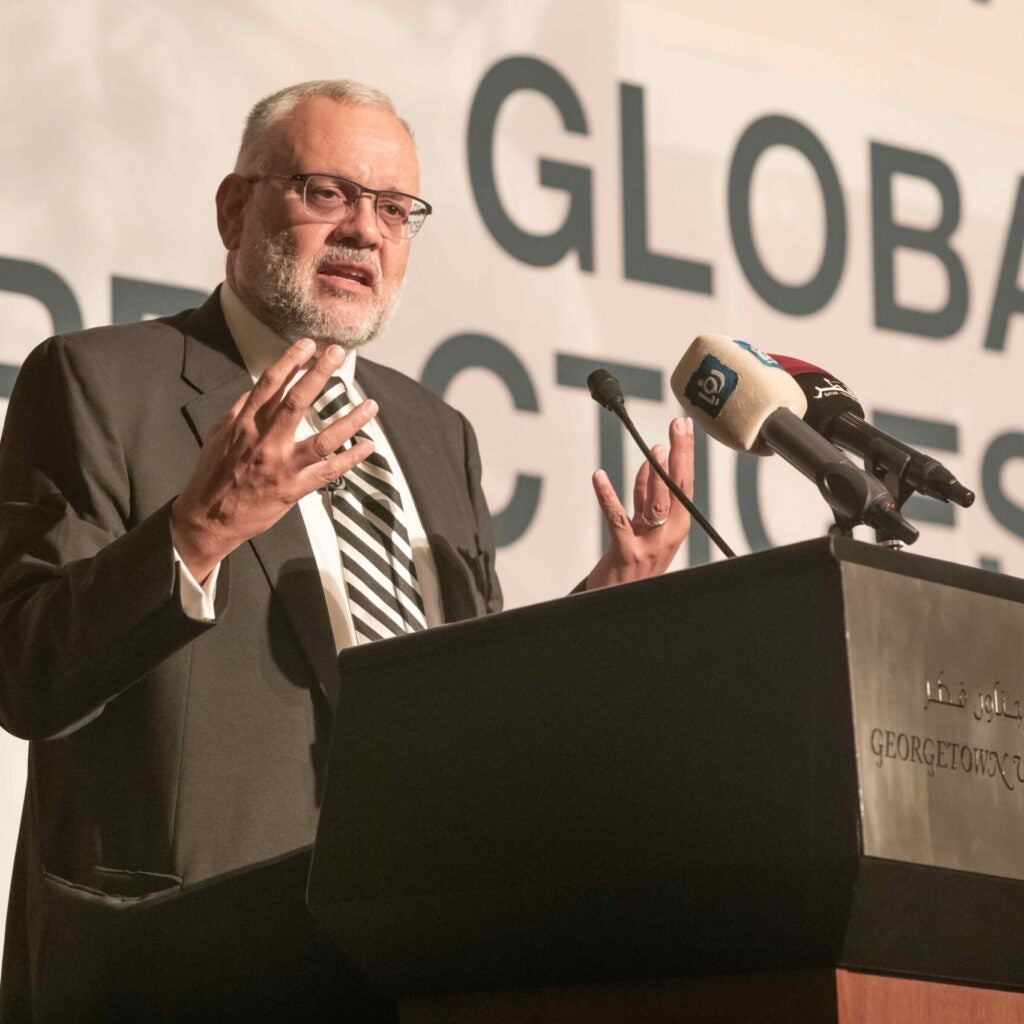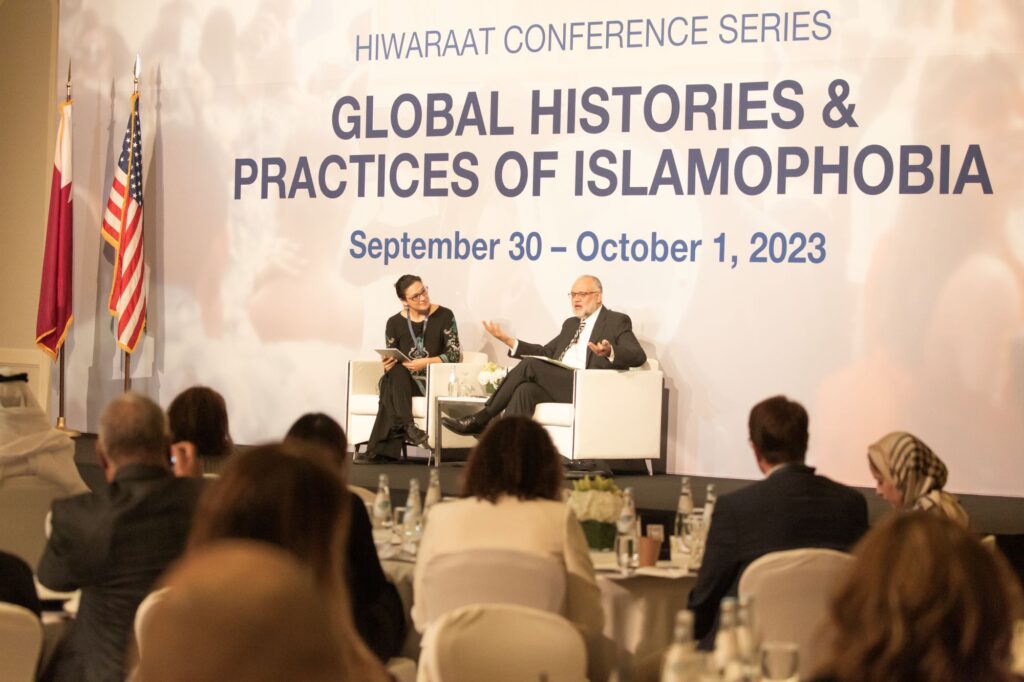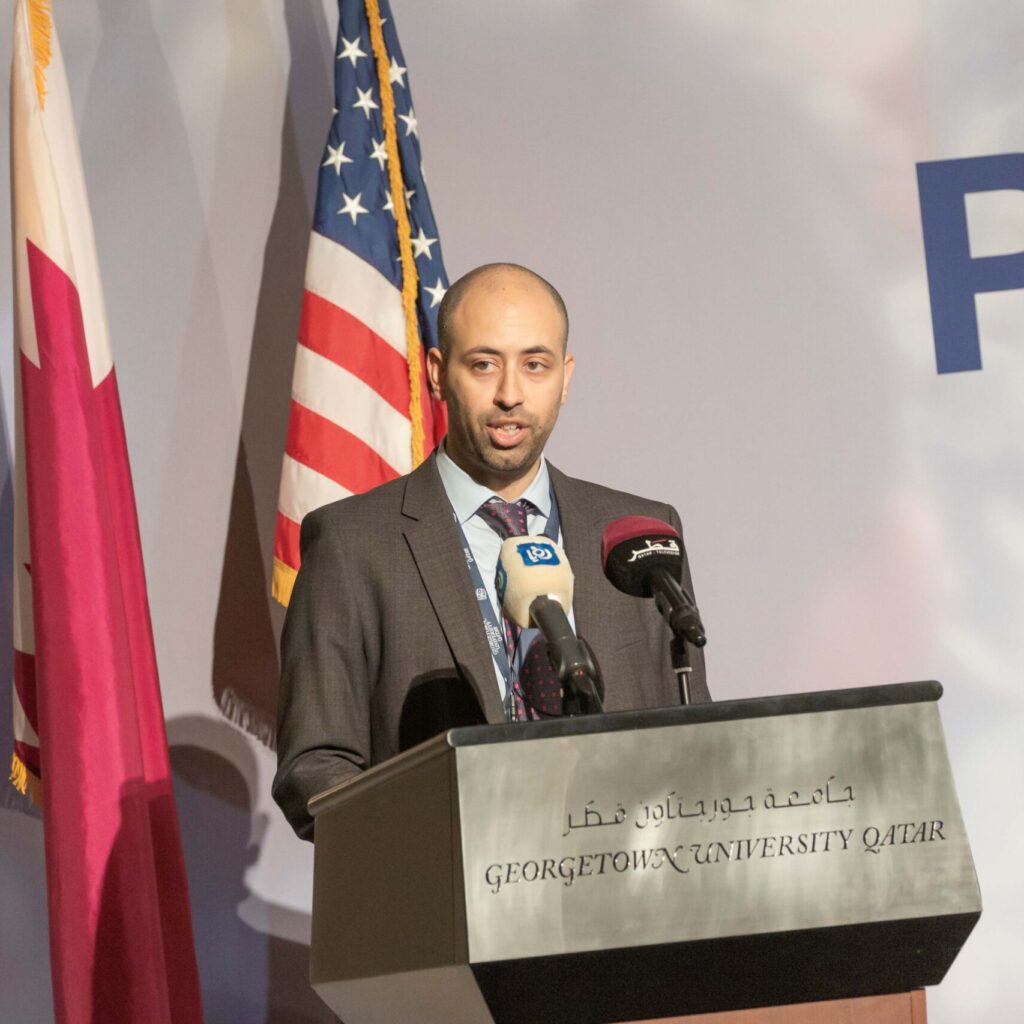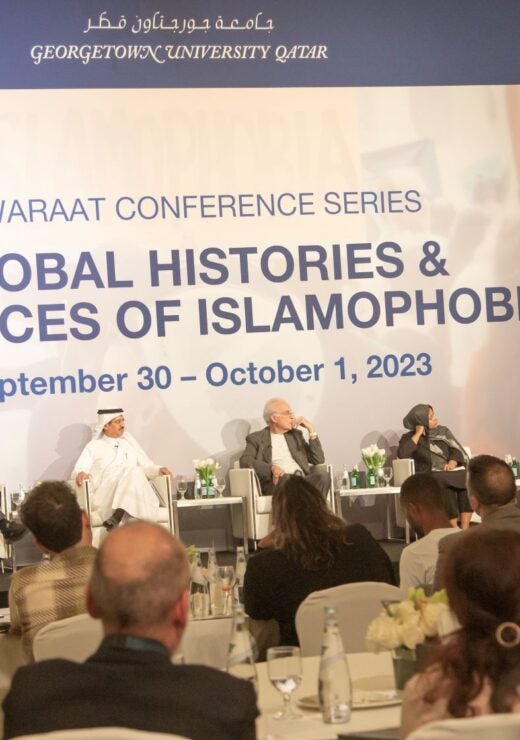Conference Examines Islamophobia’s Growing Impact on the Global Muslim Community
Georgetown University in Qatar (GU-Q)’s “Global Histories and Practices of Islamophobia” conference began with a resounding message to build solidarity in the global fight against Islamophobia and other forms of discrimination, bigotry, and racism. In response to the growing global apprehension surrounding the surge in anti-Muslim bias and hate-related incidents, the conference is examining Islamophobia and its rampant discourse in political, social, educational, and other contexts.
In his opening keynote speech, H.E. Ambassador Ebrahim Rasool, Founder of the World for All Foundation, said:

“We create isms and phobias for every difference. We dress it up as an anxiety of the unknown, activating the surveillance state, sophisticating punishments at every event, and perfecting the policies of immigration, as if they are normal laws that we need to implement. All of those things have morphed into what today can only be described as mainstream extremism.”
He added: “When you call it a fear, a phobia, you place the burden on the victim. It is a double burden, to survive discrimination and to prove that they are not so fearful.”
Speaking about the contemporary situation, H.E. the Ambassador said: “The ‘Muslim other’ in today’s world has special treatment. Because almost 10% of every Western country is composed of the ‘other.’ There is no longer any mono-cultural phenomenon in the West; 25% of the Muslim community globally find themselves in conditions of being a minority.” He added: “Islamophobia is no longer a Western phenomenon. It has taken root where there are Muslim minorities in India, China, Myanmar, and other places. Whether in the West or the East, they are confronted with all manners of populisms and mainstream extremisms.”
Drawing lessons from South Africa’s anti-apartheid struggle, he spoke on the need for solidarity in the fight against all forms of bigotry, a solidarity that transcends religion, race, and ethnicity, and to find common cause.
“The heroes we need today are those who can find the anti-human in the anti-Muslim. Those who can avoid the temptation to Muslim exceptionalism so that we can build bridges to other victims as well, while resisting the Islamophobia against them. Those who can recognize common pain, common empathy, and common cause with other victims of bigotry and domination. And who can build, out of sheer pain, a mighty solidarity.”

Responding to questions about the role of diplomacy and sport in confronting Islamophobia, H.E. Ambassador Rasool said that public diplomacy, of the kind that Qatar showcased through hosting the FIFA World Cup 2022TM, was very effective in combating anti-Islamic sentiment.
Delivering the welcoming remarks, Dr. Abdullah Al-Arian, Associate Professor of History at GU-Q and a conference co-organizer, said:
“Islamophobia continues to exhibit disturbing and destructive features that are both globalized, in the sense they are becoming increasingly universalized, and at the same time deeply rooted in local beliefs and practices emerging out of particular historical and lived experiences. Among other things, this conference aims to detangle these seemingly contradictory features of the Islamophobia phenomenon, examine the impacts these practices have had on populations across the globe, and consider what remedies could be devised to tackle the challenge across multiple spheres.”

The conference continues through Sunday, October 1, with leading scholars and academics exploring the dynamics that now drive contemporary Islamophobic practices and their global connections. Alongside the sessions, public workshops and a GU-Q student-led forum will explore appropriate responses to help stem the spread of Islamophobia on university campuses.
Undoing Islamophobia and Reframing Muslimness: Connecting Global Perspectives
With Islamophobia gaining widespread attention for its alarming rise all around the world, a pivotal conference hosted by Georgetown University in Qatar (GU-Q) explored the complex power dynamics that drive the phenomenon and its intersections with xenophobia, misogyny, and systemic, institutionalized forms of racism, bigotry, and dispossession. Held under the theme “Global Histories and Practices of Islamophobia” from September 30…